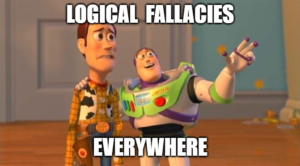In the realm of discourse and debate, the battleground of ideas can sometimes resemble a treacherous maze....
non sequitur
In the realm of rhetoric and critical thinking, the term “non sequitur” stands as a sentinel of...





